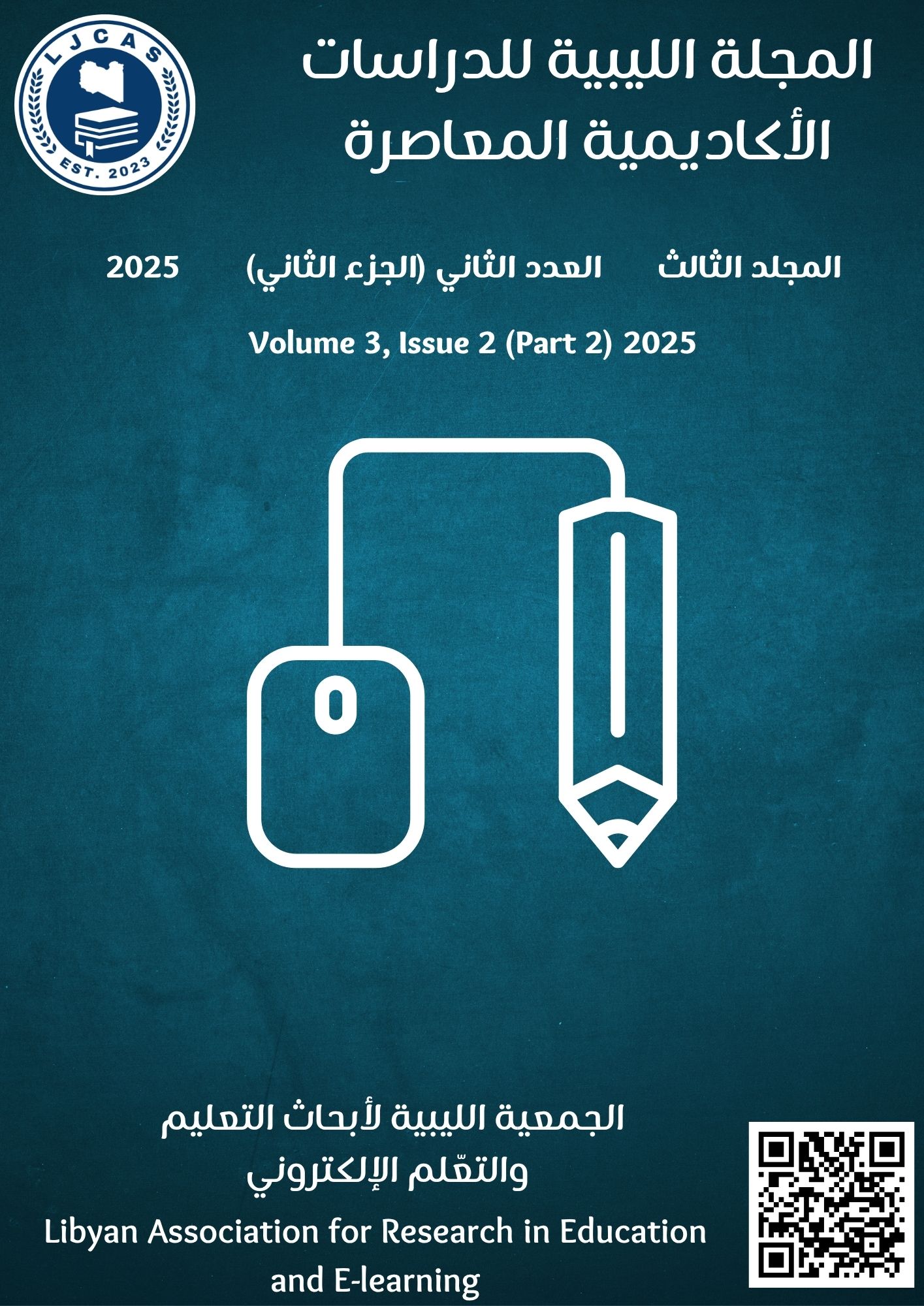Agriculture in the state of Tripoli during the second Ottoman era 1835 AD - 1911 AD
Keywords:
Tripoli, State, Ottoman, Agriculture, EconomyAbstract
Libya has known agriculture since ancient times, and a large number of its inhabitants practiced this activity. However, most of this farming was carried out using primitive methods and was confined to the coastal plains and nearby areas. Agriculture relied heavily on rainfall and little well water.
Agriculture is considered one of the most important pillars of infrastructure, economics, and social development in any society, particularly in the Tripoli Vilayet during the Second Ottoman Empire in 1835.
Agriculture was a primary source of livelihood and met the needs of citizens. When the Ottoman Empire took control of the Tripoli Vilayet for the second time in 1835, it worked to organize the administrative and financial situation, including the agricultural field, by issuing new laws related to land and defining some methods of local administration…
It can be said that the state of Tripoli had an effective role in improving the living conditions of the citizen in terms of agriculture and its strategic location, which was considered one of the most important areas overlooking the Mediterranean Sea, which had a role in benefiting from transit trade






